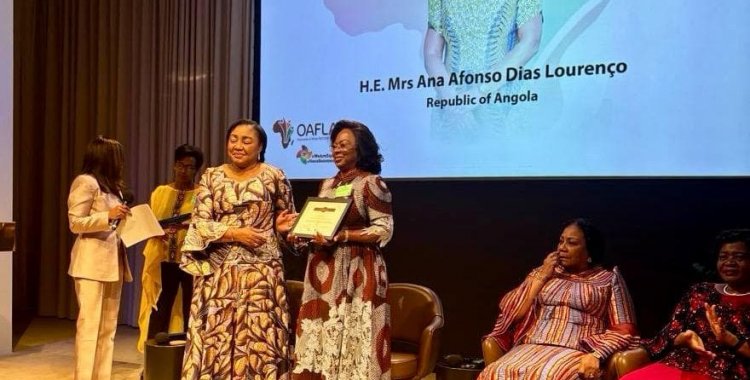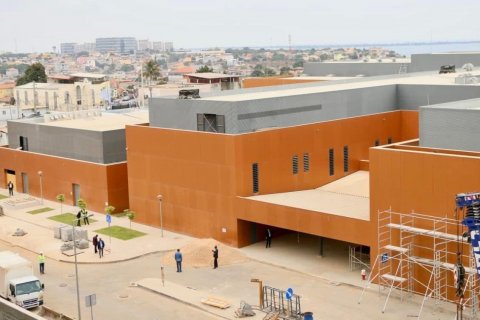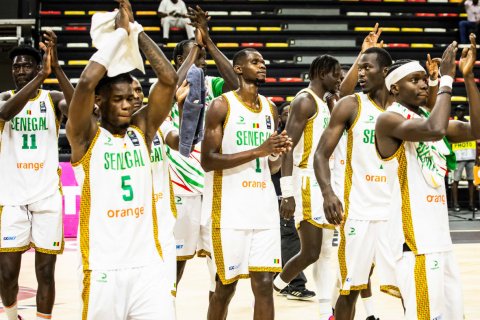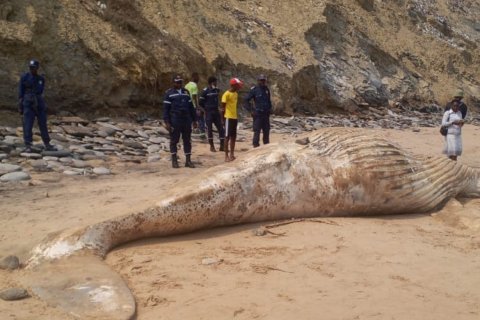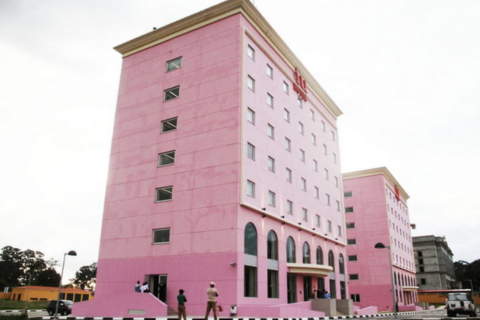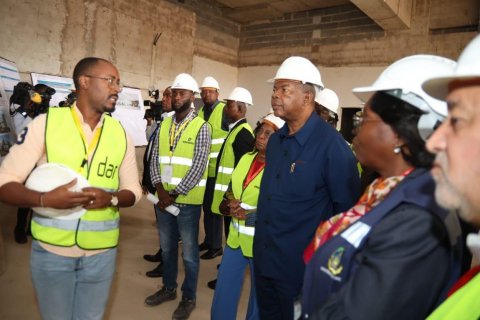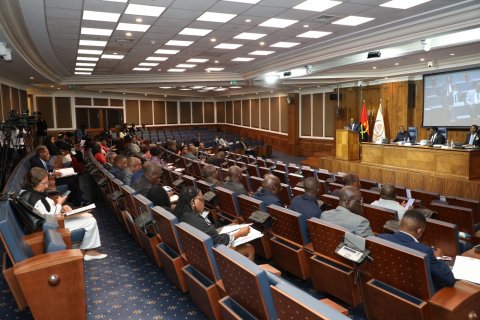According to a statement from CIPRA, to which VerAngola had access, the tribute took place at the conference 'Scaling Change Through Collaboration', which took place on the sidelines of the 79th General Assembly of the United Nations, which brought together several world leaders and personalities in New York.
In addition to Ana Dias Lourenço, "the conference also paid tribute to other African first ladies who implemented the 'We Are Equal' campaign in their respective countries and also achieved a positive impact".
Alongside this event, which was promoted by the Organization of African First Ladies for Development (OAFLAD), the First Lady of the Republic also "participated in the roundtable on ecological school meals, organized by the Rockefeller Foundation".
According to the statement, Ana Dias Lourenço's agenda in New York, between 23 and 25 September, "culminated with a courtesy meeting hosted by the host First Lady, Jill Biden, used to share knowledge and exchange experiences".
"On several occasions, Ana Dias Lourenço spoke to present her initiatives implemented in Angola for social and economic progress, in the areas of child protection, equity and gender equality", the note also states.
After her visit to the USA, Ana Dias Lourenço made a stop in Portugal, where, last Friday, she participated in the 2nd Economists' Forum of the Lusophone Economic Association (ALECON), held at the headquarters of the Union of Portuguese-Speaking Capital Cities (UCCLA).
Speaking on the occasion, Ana Dias Lourenço praised the tribute paid to Professor Américo Henriques Ramos dos Santos, who received the honorary title of Economist Emeritus, "for his significant contribution to the development of economic sciences at a national and international level".
Quoted in another CIPRA statement, to which VerAngola had access, the First Lady of the Republic highlighted the contribution of the aforementioned professor, "with whom she established a solid professional relationship over many years of work and cooperation, in the exercise of her function as Minister of Planning, from 1999 to 2012, whose support was limited to the training and retraining of Angolan staff, with the intellectual notoriety of that professional having constituted a mobilizing factor and progress achieved in terms of programming and management of public investment".
On the occasion, the First Lady of the Republic also highlighted the "valuable contribution" to building the National Planning System, both from an instrumental and methodological point of view, as well as from the point of view of integrating technicians capable of "conceptualizing the management of economic planning".
"With the support and technical coordination of Professor Américo Ramos dos Santos, Angola, between 2003 and 2004, designed its first instrument of Post-Independence Prospective Planning, called the Long-Term Strategy 'Angola 2025', with which a new era was inaugurated in the history of Planning", the note reads.
For Ana Dias Lourenço, the preparation of the Strategy 'Angola 2025' reflected "a relevant period of two years of debate on the major economic and social issues, having been a constant in a country in which the process of reconstruction, in general, and, in particular, the rehabilitation of basic and essential infrastructures for the population was the priority in an economic and social context that demanded from all Angolans, in addition to thrift, public choices geared towards maximising the satisfaction of needs".
Regarding the Community of Portuguese Speaking Countries (CPLP), "given the need for changes in the economic system and the technical capacity required, Américo Dos Santos provided consultancy services in the area of economic and sectoral planning".
In addition to Ana Dias Lourenço, the President of the Portuguese Republic, Marcelo Rebelo de Sousa, was also present at the ceremony. On the occasion, the Portuguese head of state considered it "a joyful and unforgettable moment, and awarded the honouree for his distinguished professional career".
The forum, which is held every two years, addressed issues related to the role of economic agents in cooperation policy, the European Union, among others.

